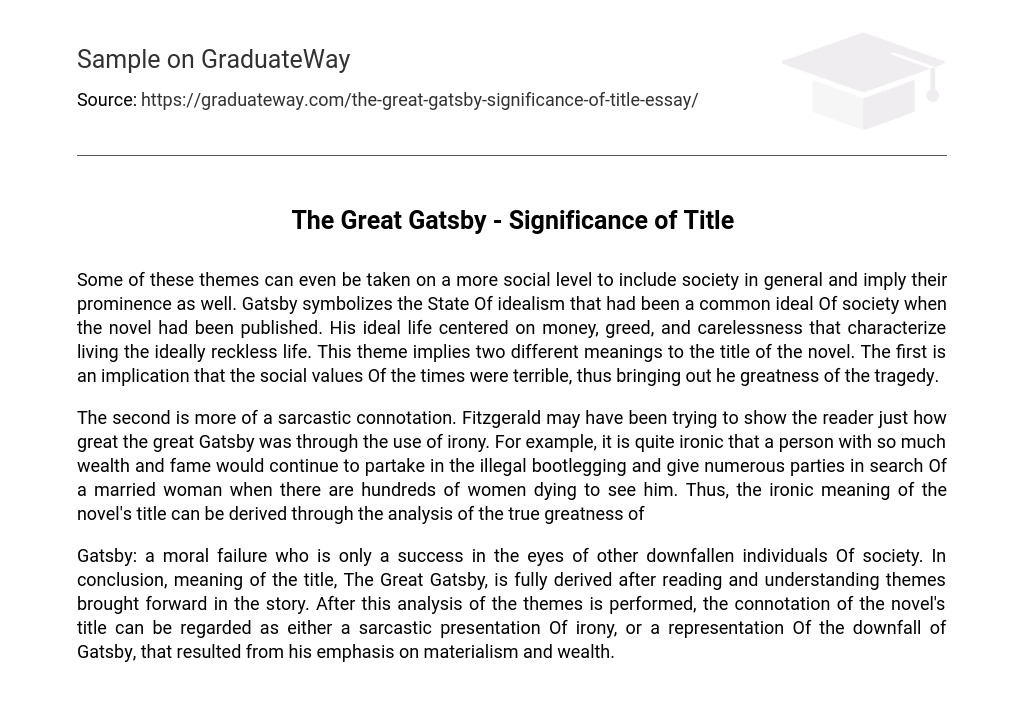Some themes in the novel can also be applied to society as a whole, highlighting their significance. Gatsby represents the idealistic state of society during the time of publication, where wealth, greed, and recklessness were central to an ideal life. This theme adds two layers of meaning to the novel’s title. Firstly, it suggests that the societal values of that time were terrible, thus emphasizing the tragedy’s magnitude.
The second connotation is sarcastic, as Fitzgerald may have been employing irony to demonstrate the immense greatness of the great Gatsby. An example of this irony is the fact that someone with enormous wealth and fame would engage in illegal bootlegging and throw lavish parties in pursuit of a married woman, while there are countless women eager to be in his presence. Therefore, by analyzing the true magnificence of the novel, the ironic significance of its title can be discerned.
Gatsby, portrayed as a moral failure, is seen as successful by those who have also experienced societal downfall. The true meaning of the title, The Great Gatsby, becomes apparent upon delving into the story’s themes. Once these themes are analyzed, the novel’s title takes on a sarcastic tone of irony or serves as a representation of Gatsby’s downfall caused by his fixation on materialism and wealth.





